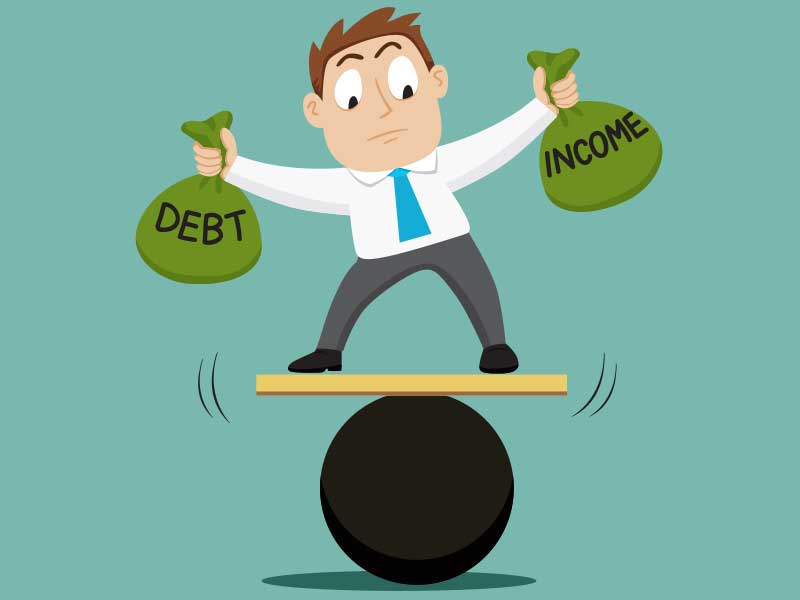Any aggressive, threatening, or harassing activity by a financial institution toward a customer is called bank harassment. Examples are constant phone calls, emails, or letters requesting money or issuing fictitious threats of legal action, wage garnishment, or property seizure. Comenity Bank, a financial institution, provides credit cards and other financial services.
You can take the following precautions to prevent harm to yourself if Comenity Bank or another financial institution is harassing you in this way:
- Learn about various consumer protection legislation and the Fair Debt Collection Practices Act (FDCPA).
- Keep a record of all correspondence with the bank, including all calls, emails, and letters.
- Send the bank a written request to stop contacting you.
- If the bank keeps bugging you, consider meeting with a consumer protection lawyer.
- You can report to the Consumer Financial Protection Bureau (CFPB) if you believe the bank has violated the FDCPA.
- To defend yourself against bank harassment and ensure your financial rights are upheld, be aware and proactive.

Knowing The Various Forms Of Bank Harassment & What To Do
It’s essential to understand the wide variety of bank harassment so you can take the necessary precautions to protect yourself. You must know your rights under the FDCPA and other consumer protection laws and take action if you think a bank is harassing you or acting in any way that is against the law. Following are some examples of the many forms of bank harassment and what you may do to stop them:
- Constant phone calls demanding payment or threatening legal action are typical types of bank harassment. You may ask the bank to stop calling you if you’re getting these calls, or you can tell them in writing that you don’t want to be called anymore. You can complain to the Consumer Financial Protection Bureau (CFPB) if the calls keep coming in.
- Some banks may issue false warnings of legal action, disciplinary action, or property takeover. If you’re getting these threats, you can urge the bank to show you the debt’s documentation and speak with a consumer protection lawyer.
- Banks may contact your friends, family, or work to pressure you into making payments. If this occurs, you may report it to the CFPB as violating the Fair Debt Collection Practices Act (FDCPA).
- Some banks could send inaccurate information to credit agencies, which might lower your credit score. Any wrong information on your credit report may be disputed, and you can do so by providing proof.
- To recover a loan, certain banks could claim to be someone they’re not. You can report this to the CFPB since it is unlawful.

How To Deal With When Banks Try To Take Advantage Of You
You may fight back in many ways if you feel that a bank is attempting to take advantage of you: Know Your Rights: Learning about your rights as a customer is the first step. Examine your account agreement’s terms and conditions, acquaint yourself with the Fair Debt Collection Practices Act (FDCPA) and other consumer protection laws, and be aware of the acts that banks may regard as illegal or abusive.
- Document all correspondence with the bank, including calls, emails, and letters. Ensure you take thorough notes on everything said and when, and make copies of any paperwork or correspondence you receive.
- Send a letter asking the bank to cease contacting you if they call you repeatedly. With a few exceptions, they have to stick by your request under the FDCPA. A copy of the letter should be kept for your records.
- If you think the bank is acting unethically or abusively, speak with a lawyer focusing on consumer protection legislation. They can help you understand your rights and represent you in court.
- You can complain to the Consumer Financial Protection Bureau (CFPB) if you think the bank has violated your rights under the FDCPA. The agency will look into your complaint and penalize the bank if necessary.
- If you’re dissatisfied with how your bank treats you, consider moving to another bank or financial organization. Choose a bank that has reasonable conditions and respects its clients. Always remember that you have rights as a consumer, and it’s crucial to take steps to safeguard those rights.

What Laws Are There To Aid Customers In Their Fight Against Unethical Banking Practices?
Several rules are in place to protect customers against illegal banking activities. Here are some of the primary laws in place to assist customers in retaliating:
- Fair Credit Reporting Act (FCRA) controls how credit reporting organizations gather and use consumer credit data. Customers can view their credit reports and challenge any incorrect information.
- The Truth in Lending Act (TILA) requires banks and other lenders to make explicit and intelligible disclosures about the terms and conditions of a loan or credit arrangement. It also allows customers to terminate specific loan kinds within a particular time range.
- The Fair Debt Collection Practices Act (FDCPA) governs the methods of contact and communication debt collectors use with consumers. It allows consumers to contest the accuracy of debt and forbids aggressive, dishonest, and unjust debt collection techniques.
- The Electronic Funds Transfer Act (EFTA) governs transactions using debit cards and ATM withdrawals that involve electronic funds transfers. It allows customers the ability to challenge mistakes and illegal transactions.
- The Consumer Financial Protection Bureau (CFPB) is legislation that upholds most of the above-mentioned regulations and protects customers against unfair, dishonest, and abusive activities by banks and other financial institutions.

The Top Sources For Understanding Your Rights And Taking Action Against Banks
By using resources, you may learn more about your consumer rights and take steps to protect yourself against dishonest banking practices. Remember that information is power, and being proactive in defending your financial rights might prevent you from falling victim to illegal banking practices. Here are some helpful alternatives if you’re seeking sites to assist you in finding out about your consumer rights and taking legal action against banks:
Consumer Financial Protection Bureau (CFPB)
The CFPB is a federal organization tasked with defending consumers against unfair, dishonest, and abusive banking and financial practices. Their website provides many tools for complaining to banks, initiating legal action against them, and information about consumer rights.
National Consumer Law Center (NCLC)
The NCLC is a nonprofit group seeking to advance economic security for low-income and disadvantaged persons and consumer justice. Their website provides a wealth of consumer materials, such as legal manuals and tools for consumer activism.
Federal Trade Commission (FTC)
The FTC is a federal organization that aims to defend consumers against unfair and dishonest corporate practices. Their website provides resources for complaining to banks, initiating legal action against them, and information on consumer rights.
Legal Aid Society
The Legal Aid Society is a nonprofit organization offering free legal aid to low-income people and families. They provide legal support in various situations, such as consumer protection and financial issues.
State Attorney General’s Office
The office of your state’s attorney general may provide resources and information on consumer rights and safeguards and guidance on how to lodge complaints against banks and other financial institutions.

Conclusion
Regarding bank harassment, the most important thing to protect your rights is to know your rights as a consumer, keep records of all communications with the bank and take action if you feel your rights are being violated. This may include filing a complaint with your bank, government agencies such as the Consumer Financial Protection Bureau or state attorney general, and seeking legal advice from an attorney specializing in consumer protection law. It is essential to remain vigilant, proactively protect your rights, and not let banks or other financial institutions take advantage of you.

